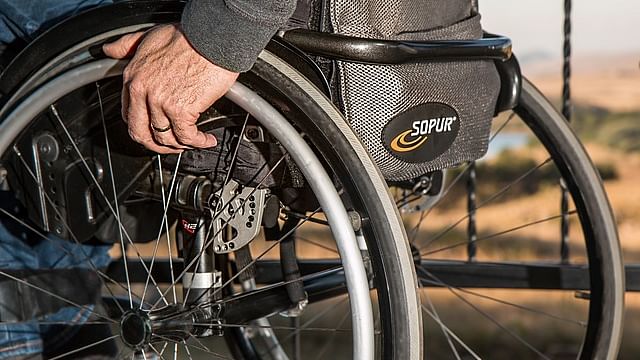Specially-abled people in Pakistan’s Gilgit Baltistan suffer due to bureaucratic disobedience, corruption

Advertisement
The specially-abled persons in Pakistan occupied Gilgit Baltistan are fighting two fights, one with the government’s discrimination and the other with their physical disability, in getting education and job quota.
In this region, only two per cent quota is provided for specially-abled people in government jobs but even that is not implemented in true spirit due to rampant corruption.
The top representatives of the Gilgit Baltistan Disability Alliance blame the bureaucracy for their sufferings. They say that it has been in cahoots with the corrupt political class of the region and has been deliberately framing discriminatory policies.
“The main problem here is implementation. Bureaucracy is always against when we talk about the implementation here. Be it the implementation of disability quota or the issue of accessibility, bureaucracy has always acted as a hurdle,” said Irshad Kazmi, Information Secretary of Gilgit Baltistan Disability Alliance.
“If we talk about the implementation of the disability quota in Gilgit-Baltistan, then there will be around 45 per cent fake people. If the documents are to be verified by making a Commission, then a number of people will be found who have got a government job by faking disability while the deserving specially-abled candidates are still unemployed and are stumbling here and there,” he added.
The specially-abled people in the region have protested time and again against the government for failing to protect their rights but all in vain. Last year, they deceived them by announcing Rs 5 billion under Gilgit Baltistan Chief Minister’s Package, which was never really spent on their welfare.
On top of all that, the government has not even bothered to provide them a decent education. There is only one Special Education Complex in the entire region where the hostel, too, has been occupied by Pakistan’s National Accountability Bureau officials.
“There is the issue of education for the specially-abled, which still continues to persist. At the Special Education Complex in Gilgit, only primary level education is provided and its hostel is still under the control of NAB (National Accountability Bureau). In other districts too, the problem of special education is not given any importance. Around 99 per cent of specially-abled children in Gilgit-Baltistan are still not receiving any education. These all are the genuine problems that the specially-abled people face,” Kazmi explained.
As per the estimates, there are around 80,000 specially-abled people in Gilgit Baltistan, out of which only 15,000 are registered but even they are not provided with the benefits they deserve.
Advertisement






